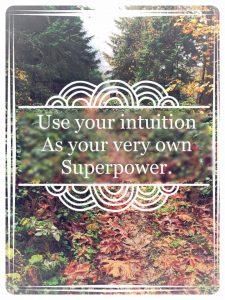Do you love your friend, but can’t stand the guy she is with? Is he emotionally, verbally or physically abusive to her but acts like it’s no big deal? Maybe he drinks too much, is too controlling, or has a reputation for being a bad boy. Whatever it is, you are afraid she is getting into a relationship that she won’t be able to get out of, and it scares you. Here are 10 ways for you to help your friend who’s in a toxic relationship.

1.Trust Your Instinct. You may not know if he is abusive or not, but something about him makes you uneasy. Instead of brushing that feeling off, pay attention to it. If you don’t trust him, there is probably something about him that doesn’t add up. Your instinct is a powerful tool in helping you discern safe from un-safe people.
2. Ask Hard Questions. If you have reservations about your friend’s new guy, be willing to ask her questions and share your reservations. It may feel awkward or even a little confrontational. Be careful to show your care and concern and re-iterate how important she is to you. There is no need to lecture her about her answers to these questions. Just be willing to ask things like, “Do you know where the money is going?” or “Has he hurt you before?” or “Are you scared that he might hurt you?” or “Does he threaten you?” She may be reluctant to tell you unless she is pointedly asked.

3. Remain Non-judgmental. Chances are, she sees things in him that you don’t, and she loves him. She also believes that he loves her, no matter what other people may say. Reserve judgment and try to empathize with her feelings. If she sees the good in him, pointing out the bad may only push her farther away from you and into his arms. Be careful to stay empathetic and open to your friend. Women in toxic or abusive relationships often feel trapped, powerless and unable to leave. It is possible to remain supportive of her without supporting his abusive behavior.
4. Plan a Mini- Intervention. An intervention should be carefully considered in regard to making sure your friend feels safe, supported and cared for. Invite a couple of her closest friends or family members together to share your concerns with her. It’s important that she not feel coerced, pressured or guilted into leaving the abusive relationship. Be careful not to run through a list of the things you don’t like about her guy. Instead, share how you’ve noticed her changing, how you miss seeing her as often, and that you are there for her when she needs you. Tell her, “You don’t seem as happy as you used to,” or “You don’t do the things that used to make you happy. Is everything ok?” An intervention may not result in a “Rescue Operation,” but it can be a first step to help her feel the support she needs if/when she decides to leave.
5. Believe Her. If, and when she opens up to you about emotional, physical or financial abuse, it’s important for her to feel like you believe her, and that what she is saying is important. Abuse comes in many forms: obsessive control, psychological manipulation, religious intimidation, jealous rage, and invasive badgering. If your friend says there is “something wrong” but can’t put her finger on it, believe her without supporting details. She more than likely has tried to minimize or excuse the abuse for awhile, and admitting it is extremely difficult. Validating her fear and pain is important, as is helping her think through next steps.
6. Ask her how she wants you to help. It’s ok if you don’t know what to do, what to say or how to help. Ask her how you can support her. No one has all the right answers at all the right times, and she probably doesn’t want answers as much as a friend to listen, share her burden, and be a safe person to turn to. If she does want help to get safe, see #8.
7. Be patient. Often, women in abusive relationships contemplate leaving for years but fear the consequences of that decision. She may be afraid of losing her children, or that he will take revenge. She may still be hopeful that he will change. You may be tempted to become frustrated with her indecision, but this indecision is an important part of her process to finally break free. Instead of pressuring her to leave, tell her you support her decision to leave but you understand how hard that decision is to make. The leaving/going back process may take years. Let her know you’re there for her no matter what she decides.

8. Be practical. If she is trying to escape her relationship, be as practical as you can. Some suggestions are: buy her a phone with a private number to use in emergencies, give her a safe place to stay, drive her to a safe house, watch her kids while she gets help, ask if you can call the police to escort her to get her things, or help her make connections with local Domestic Violence Agencies. www.thehotline.org and 1-800-799-7233 are domestic violence helplines that can help with next steps. The dedicated people here are a wealth of information and are willing to help.
9. Remind her of her value and worth. Often, women in toxic relationships can lose their confidence and sense of self-worth. They may live in a state of anxiety or depression and feel unable to take important steps toward health and healing. Help them to remember that they are important to you and to the people who love them.
10. Pray. Sometimes prayer is the best and only way to help. Toxic, abusive relationships have a great deal of power over women and their families. Without breaching her confidentiality, rally friends and family together to pray that 1) this toxic power loses its grip, 2) that the threat of emotional and physical violence is replaced by safety and support, and 3) that Light would replace darkness. Pray that your friend is able to feel her own value and receive care from those who truly love her. Once she breaks free from the abuse, she will need extra prayer support to stay strong, stay safe and stay the course.
Your friend is lucky and blessed to have you. You may be afraid that you’ve said or done the wrong thing in the past. Maybe you’ve even kept your distance for awhile. Maybe you’ve been hurt because she pulled away from you. These things commonly happen. These feelings don’t have to stop your love for her. And Love always wins.







